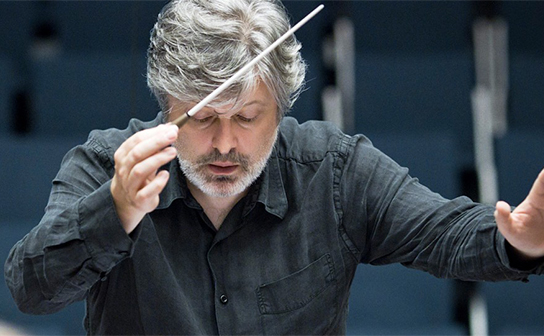Tonight’s concert is dedicated to one composer, Sir James MacMillan, arguably one of Scotland’s finest living composers. The first half (conducted by the composer) is his 1989 work Tryst. Like many good composers before him, he uses material from earlier pieces, in this case from his original setting of William Soutar’s poem of the same name. The latter reappears in a number of other works, but the orchestral version is the most dynamic one, and conveys the poem’s sense of loneliness in an almost expressionist way, with dense contrasts of orchestral colour. Particular mention must be made of the wind and brass, who are often shrieking like banshees at the climaxes. Sensitive string playing adds colour to the quiet sections.
Much of MacMillan’s music is driven by his Catholic faith, and it is appropriate in this season of Lent, that the second half is given over to his 2015 composition, Stabat Mater. This 13th century text, a meditation of Mary, mother of Jesus, at the cross, has inspired many composers to set it. It is clear that this piece has had a long gestation period, fuelling MacMillan’s two Passions.
Tonight’s performance, with the SCO strings and the famous choir The Sixteen, is conducted by Harry Christophers. The music is immediately different from Tryst: there is fabulous string writing throughout, and the choir is on top form. There’s intense darkness and violence, lyricism, and a final, quiet finish.
If there is one quibble, it is that this hour long, four-movement setting does not hold our attention in the same manner that Tryst does: it feels a little diffuse despite the terrific performance. But it is interesting to hear these two very different pieces from this composer’s oeuvre, and it is good to see a packed Queen’s Hall too.
